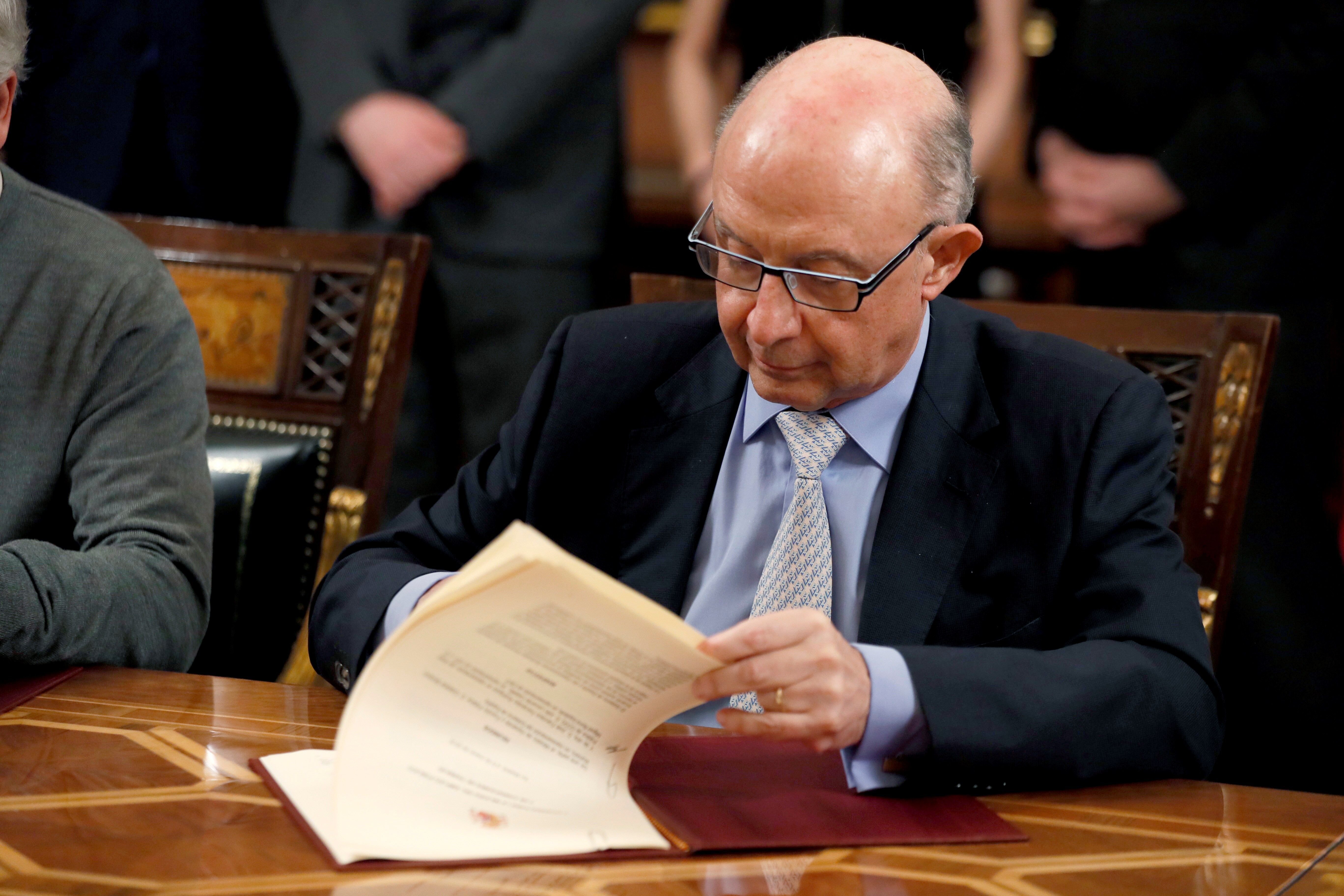The secretary general of Local and Autonomous Community Funding, Belén Navarro, has insisted today in an appearance in the Spanish Congress that no money from the FLA (Autonomous Community Liquidity Fund) went to covering expenses as part of the Catalan independence process, and that as such there was no misuse of public funds by Catalan officials. Navarro thereby, in the Spanish lower house itself, refuted the accusations of judge Pablo Llarena.
Navarro said that "there has been no money which was destined" to making the referendum possible, through either FLA payments or checks on payments to accounts. She noted that the question "is an object of study by the courts and jurisdictional bodies" to see if "any money which doesn't correspond [to the FLA] was diverted" or whether any invoices "don't correspond to their [true] end".
The secretary general recalled that the FLA system has "two basic strands: one of maturing debt and that of paying providers". As such, "the money given to the autonomous communities through the FLA goes directly to paying matured debts or providers through a platform where the autonomous community charges invoices and the providers are paid directly".
Navarro's statement today hints at the response the treasury could give in the coming days to Supreme Court judge Pablo Llarena, who this Wednesday issued an order for the treasury minister, Cristóbal Montoro, to provide information "in the shortest timeframe possible" to show why he stated no public money was spent organising the referendum. According to Llarena, these statements "contradict" evidence collected by the Civil Guard during the investigation. He asks for proof of the minister's "certainty" there was no misuse of public funds, the Spanish government having being overseeing Catalan accounts at the time of the referendum. The judge also notes that, during this week's arraignment hearings, a number of those facing charges over the independence process have argued there was no misuse of public funds, citing Montoro's statements as evidence.
In his order defining the final charges before going to trial, Llarena said that the investigations had revealed that at least 1.6 million euros (£1.4 million, $2.0 million) of public money had been destined to organising the referendum. Specifically, it says that 224,834 euros were spent on the register of Catalans abroad, 277,804 euros on advertising campaigns, 979,661 euros on distributing ballot slips, the electoral roll and notifications that people had been chosen to work at polling stations and 199,700 euros for international observers. Of the 25 facing charges, for 14 they include misuse of public funds: all the members of the Catalan government and pro-independence members of the Parliament's Bureau (except then-speaker Carme Forcadell).
In the order, Llarena doesn't hide the fact that it follows a number of those facing trial having used the minister's comments in their statements during their arraignment hearings this week. Among those who used his comments to argue against the charge of misuse of public funds were Catalan vice-president and economy minister Oriol Junqueras and presidency minister Jordi Turull.
Montoro's ministry has been overseeing Catalonia's finances since last summer. At the end of July, the Spanish government already set up a system of weekly checks that no budget items were set aside for the 1st October referendum. Later, in September, this intervention expanded to become absolute.

